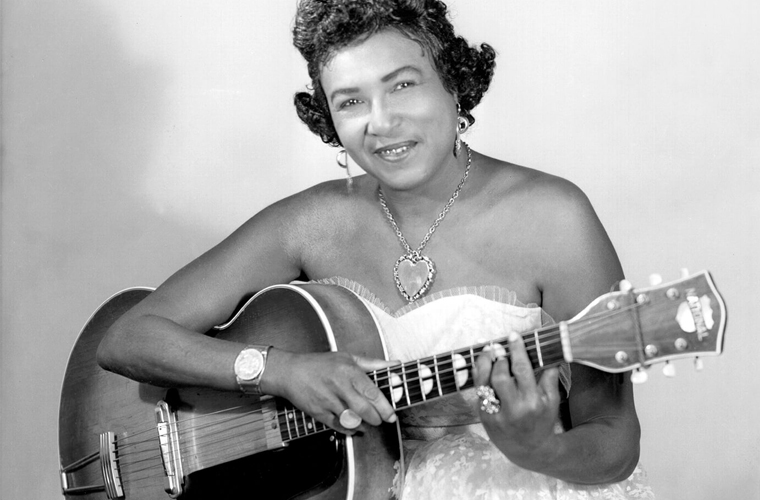Memphis Minnie, born Lizzie Douglas, was a pioneering blues musician and singer who made a significant impact on the genre during the early to mid-20th century. Born on June 3, 1897, in Algiers, Louisiana, Minnie’s career spanned several decades and she was known for her powerful voice, impressive guitar skills, and songwriting abilities. Her influence on the blues genre and her contributions to the music industry as a whole cannot be overstated.
Minnie’s early life was marked by hardship and adversity. She began playing the guitar at a young age and honed her skills by performing on the streets of Memphis, Tennessee. She quickly gained a reputation for her talent and was soon performing in local clubs and juke joints. In the 1920s, she made her first recordings, which showcased her unique blend of Delta blues, country, and urban blues styles.
One of Minnie’s most notable contributions to the blues genre was her role as a female artist in a male-dominated industry. At a time when female blues musicians were rare, Minnie fearlessly carved out her own path and became a trailblazer for future generations of women in music. Her bold and assertive stage presence, coupled with her exceptional musicianship, earned her the respect of her peers and fans alike.






Minnie’s discography is filled with classic songs that have stood the test of time. Tracks like “Bumble Bee,” “Me and My Chauffeur Blues,” and “When the Levee Breaks” showcase her distinctive voice and guitar playing, and continue to be celebrated by blues enthusiasts around the world. Her songwriting prowess is evident in the depth and emotion of her lyrics, which often explore themes of love, heartache, and resilience.
In addition to her musical talents, Minnie was also a savvy businesswoman. She navigated the challenges of the music industry with determination and shrewdness and was known for her ability to negotiate favorable contracts and business deals. Her success as an independent artist in an era when many musicians were exploited by record labels is a testament to her intelligence and tenacity.
Minnie’s impact on popular music extended far beyond her recordings. She influenced countless artists across various genres, including rock and roll, R&B, and folk. Her innovative guitar-playing style and powerful vocals inspired generations of musicians, and her legacy continues to be felt in the music of today.
Despite facing numerous obstacles throughout her life and career, Minnie remained resilient and continued to perform and record music until her passing in 1973. Her contributions to the blues genre were recognized with inductions into the Blues Hall of Fame and the Memphis Music Hall of Fame, cementing her status as a true legend in American music history.
In conclusion, Memphis Minnie’s impact on the blues genre and the music industry at large is immeasurable. Her pioneering spirit, exceptional talent, and unwavering determination have left an indelible mark on music history. She will always be remembered as a trailblazer who fearlessly pushed boundaries and paved the way for future generations of artists.

